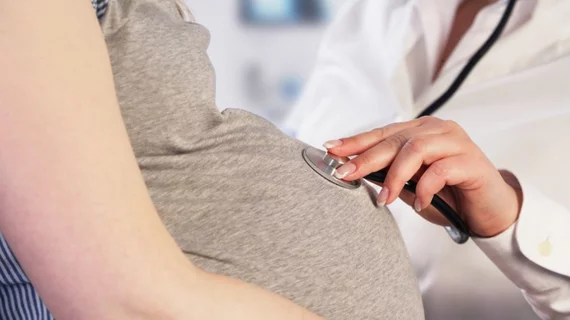How maternal COVID-related stress can alter fetal brain development
Did maternal pandemic-related stress impact the growth and development of fetuses in women who were pregnant during the first two years of COVID?
According to new research, it's possible. The preliminary results of a new study published in the medRxiv preprint server highlight variances in fetal brain development based on mothers’ perceived stress during the onset of COVID. Based on the fetal MRI exams of 39 participants, researchers determined that variances in fetal brain stem volume and temporal function were present in the fetuses of women who reported elevated stress due to the pandemic.
“In addition to health consequences for the mother, increased maternal stress has an intergenerational impact on fetal development,” corresponding author Vidya Rajagopalan of Childrens Hospital Los Angeles and colleagues explained. "Increased maternal stress during pregnancy is known to alter the fetal brain and adversely impact postnatal neurodevelopmental outcomes.”
Although prior studies have reported some neurostructural differences between infants born during the pandemic compared to those born pre-COVID, data pertaining to the direct relationship between maternal COVID-associated stress and fetal brain development remains limited.
To better understand this, between 2020 and 2022 researchers conducted an analysis of 39 pregnant women with healthy pregnancies from the Los Angeles area. Each woman completed assessments regarding their experiences with pandemic related disruptions, perceived stress and resultant coping behaviors, in addition to undergoing fetal MRI.
When comparing the MRI exams to the self-reported stress assessments, researchers found that the fetuses of women who experienced more stress and anxiety related to COVID displayed increased brain stem volumes, indicating accelerated growth. In contrast, the experts noted globally decreased temporal variability of function in the fetal brains of the same group of women, suggesting a decrease in functional connectivity.
Collectively, the authors believe that their findings, in conjunction with prior studies "suggest that in utero alterations to brain architecture, associated with maternal stress during the pandemic, could underlie developmental deficits reported in these children."
They added that additional research with a larger sample size or future meta studies are needed to understand the long-term impact of these neural alterations.
The research has not yet been subject to peer review and should not be used in clinical decision making.

